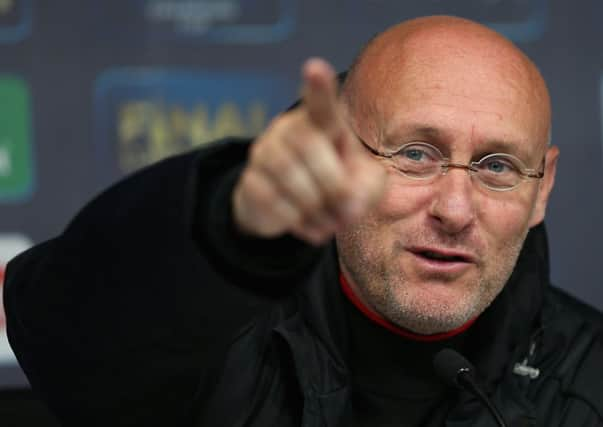French fishing for 2023 Rugby World Cup votes in Scotland


Italy pulled out so France find themselves competing against Ireland and South Africa for the honour. “It is like a game of rugby,” says Laporte when asked about France’s rivals. “You look at what you can do rather than the opposition. They will both make strong bids so we have to make sure that our bid is stronger.”
The Frenchman visits Edinburgh today fishing for votes, oosing fraternite and egalite, and he explained to us how he will curry Scottish support.
Advertisement
Hide AdAdvertisement
Hide Ad“The first aspect that comes into play is the economic one,” says Laporte. “The French bid will have the highest economic value to World Rugby and hence to all the other unions.
“Secondly we have a lot of experience of hosting international sporting events and thirdly the infrastructure is all in place because we upgraded everything ahead of Euro 2016 last year. So everything is in place and we will be spending more money on these facilities in time for 2023.”
That France’s bid would be economically viable is not seriously in doubt but just in case Murrayfield are suspected of siding with their Celtic cousins from across the Irish sea, Laporte has a few other sweeteners to get them on board.
“We are going to set up a ‘House of Scotland’ close to where the Scotland team will be based where anyone can come in and learn about Scotland, about Scottish culture, about Scottish history and watch all of Scotland’s games,” he said. “This will be set up, built up in conjunction with the Scottish Rugby Union, with the region and the local rugby clubs. This is to further links between the Scottish fans and the French rugby community during the event.
“Furthermore with regard to the volunteer programme the FFR is open to Scottish men and women taking part in the event in 2023. In the same way there is a plan to have teams of ball boys or ball girls from Scotland to participate in matches and experience the RWC in that way.”
Laporte also revealed that the FFR would offer the SRU some specially reserved hospitality packages where they could take a percentage of anything they sold although its not obvious Murrayfield would bother. The FFR bid has the full backing of their clubs and of the new French president Emmanuel Macron who Laporte insists is “100 per cent behind the bid” even if that support does not include the same financial guarantees that the Irish governments (Dublin and Stormont) have offered, which must be worth something.
Japan are thought to have had to guarantee World Rugby something in the region of €110 million for the 2019 World Cup and that sum is only likely to increase four years further down the line.
South Africa hosted the World Cup in 1995 and Francedid the same far more recently in 2007 although some matches were played at Murrayfield and Cardiff’s Millennium Stadium. There is an argument that Ireland have yet to host any major tournament and that the 2023 World Cup would be suitable reward for a small nation that is sitting a highly creditable fouth in the World Rugby rankings and punching well above their weight.
Advertisement
Hide AdAdvertisement
Hide AdWhat’s more the sums involved will only make it increasingly difficult for the smaller nations to host the third biggest sporting event in the world in the future. This may be Ireland’s only shot at glory but Laporte argues that, small country or big country, people will always attend the World Cup and watch the action on television, adding “the FFR don’t make the rules”.
The final issue for the delegates to chew may be unpalatable but cannot be avoided: the threat of terrorism. Not so long ago the word was inextricably linked to Ireland but it has taken on a far more dangerous lease of life of late.
“Euro 2016 proved that we can organise a competition in a safe and secure environment,” argues Laporte. “We got through that event with no terrorist incident at all.
“Unfortunately France has been affected by terrorism but that has meant that the country has reorganised and reformed the way it fights terrorism and there is international agreement that France now has invaluable expertise in the fight against terrorism.”
Since 2012 a total of 246 people have been killed in disparate terrorist incidents in France and that sorry fact has to be somewhere in the delegates’ minds when they finally vote on this issue come November.